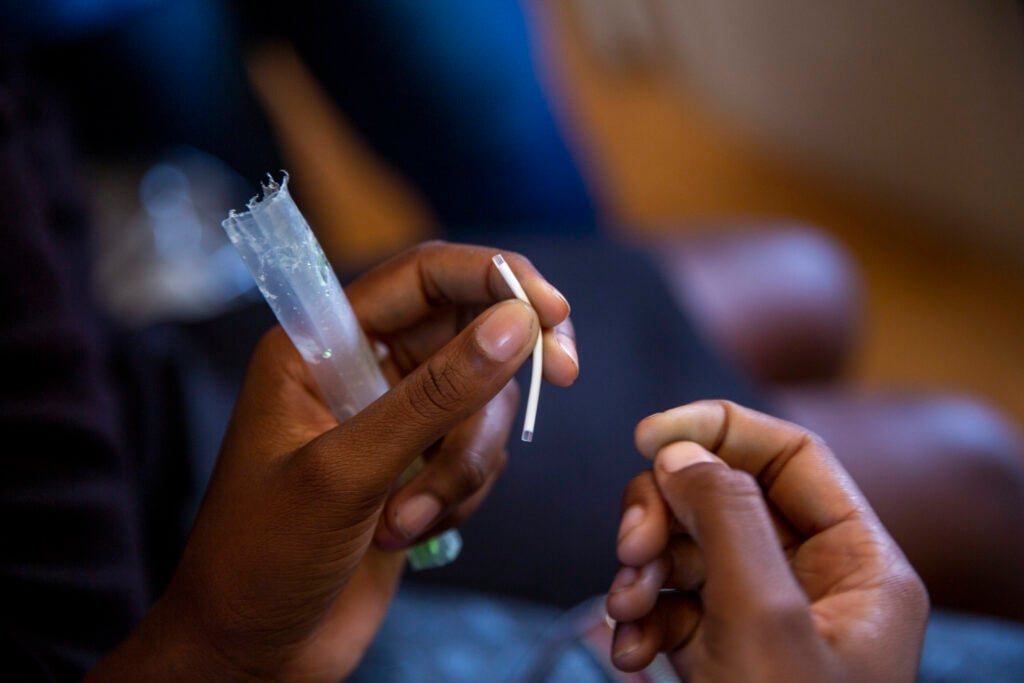A detail shot shows the contraceptive implant available to MSI Reproductive Choices clients in Mushili, Ndola, Zambia on 17 November 2021. MSI Reproductive Choices helps young people in Zambia pursue their own futures by providing them with the reproductive choices they need to avoid unintended pregnancy, remain in school, and complete their education. As an organisation motivated by the belief that everyone should have the right to determine their own future, MSI Reproductive Choices works across 37 countries to deliver contraception, safe abortion, and post-abortion care services to over 35,000 people every day.
Ejike Oji, chairman, management committee, Association for the Advancement of Family Planning (AAFP), says limited sexual education in schools is causing gaps in sexual and reproductive health in Nigeria.
Oji spoke on Friday at a media editors’ roundtable on sexual and reproductive health in Nigeria organised by Marie Stopes International (MSI) Nigeria.
He said lack of proper funding, low research to get credible data for decision-making, insufficient access to contraceptive services, and limited sexual education in schools affect sexual and reproductive health in Nigeria.
Oji said inadequate maternal health facilities, stigmatisation and discrimination towards vulnerable groups, and lack of awareness, also hinder SRH in Nigeria.
Advertisement
He said to meet the sexual and reproductive health needs of Nigerians, the demand for family planning services must be met, there must be access to comprehensive sexual education and there must be access to adequate maternal healthcare services.
Oji said the needs of the marginalised and vulnerable population must be met, safe abortion through effective policies and guidelines must be created, and sexual assault referral centres across the country must be provided.
The AAFP chairman recommended that healthcare infrastructure should be strengthened, budget allocation to SRH programs should be increased, and cultural and religious barriers should be addressed.
Advertisement
On her part, Ogechi Onuoha, director of programmes at MSI Nigeria, citing a United Nations report, said contraception and abortion contribute to an unacceptably high maternal mortality ratio (MMR) of 451 deaths per 100,000 live births.
She said about 35.5 percent of married women in Nigeria demand family planning — but only 16.6 percent of these demands are met.
Onuoha added that among sexually active unmarried women, 84.2 percent demand family planning but more than 45 percent are unmet.
Advertisement






